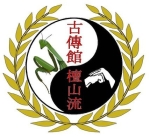What is Jujitsu
Webster's dictionary defines Jujitsu as "[soft art], a Japanese system of wrestling in which the strength and weight of an opponent are used against him by means of anatomical knowledge and the principle of leverage …”
Included in this soft or gentle art are methods of percussion with various anatomical weapons (fists, fingers, elbows, feet etc.), throwing, constrictions (pins and chokes), joint locking, bondage, and weaponry.
Jujitsu can be traced back to the 13th century, although drawings depicting techniques incorporated in Jujitsu go back much further into the past. More than 725 systems of Jujitsu were developed in Japan. Most of the modern Japanese "Do" forms (Judo, Aikido, Karate-do etc.) are rooted in ancient Jujitsu. These developed primarily as sport, eliminating many techniques to minimize the possibility of injury to the contestants.
Beyond the physical and historical elements of Jujitsu there exists an intricate philosophical structure. These philosophical aspects are based primarily on the ancient samurai code of ethics. These aspects are reiterated in Professor Okazaki's "Principles of Judo." The philosophical and moral aspects of budo are all too often viewed as abstract concepts when in fact Professor Okazaki intended that they be embraced for use in daily life.
Today, aside from a quick mention that Jujitsu will help improve a student’s character, most teaching is limited to the physical elements. Previously, teachers would only train those students exhibiting strong moral character. Oriental traditions of honor, obedience, loyalty, and filial piety had to be evident if a student was to advance to the higher levels of training. The greatest and most renowned martial artists have been those with a deep regard for the philosophy of Budo.
Mas Oyama, in his book "The Kyokushin Way," relates how after World War II he put his martial arts expertise to use for criminal purposes. While in prison Oyama read a book on the life of Miyamoto Musashi (a great samurai swordsman, 1584-1645). At one point Musashi was chastised by Takuan Soho to use his strength for the sake of others, rather than only self-interested motives. This passage read in the context of being in prison for misuse of his strength changed Oyama's life.
